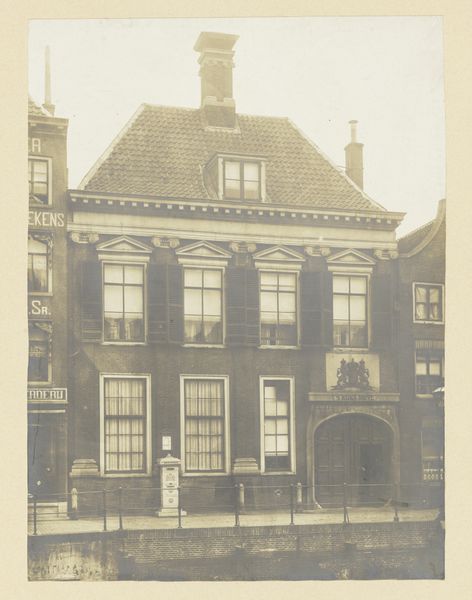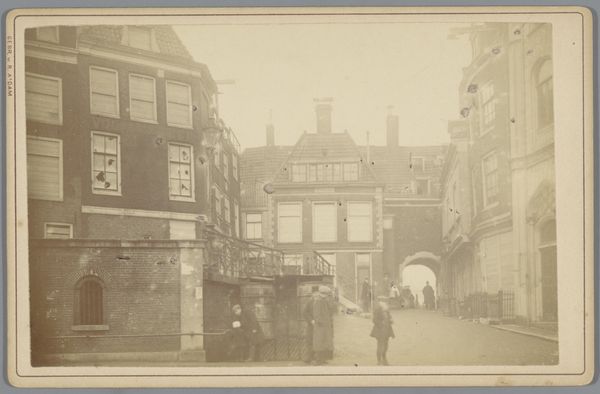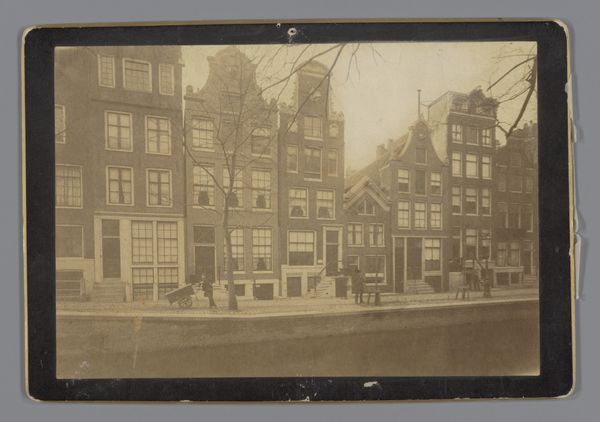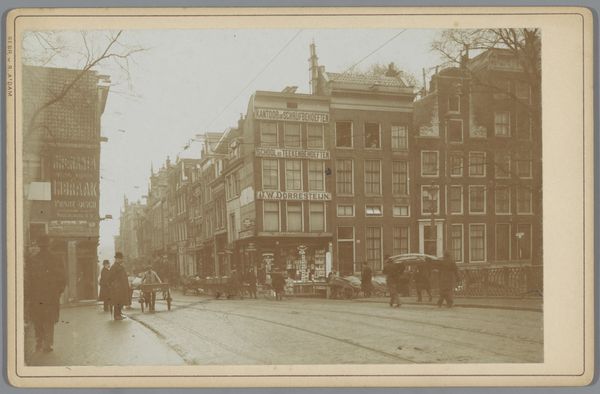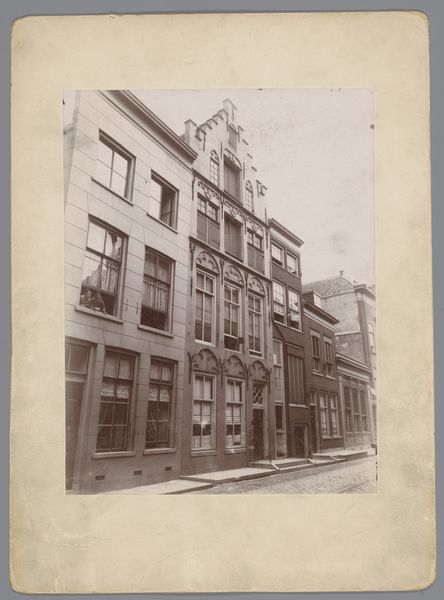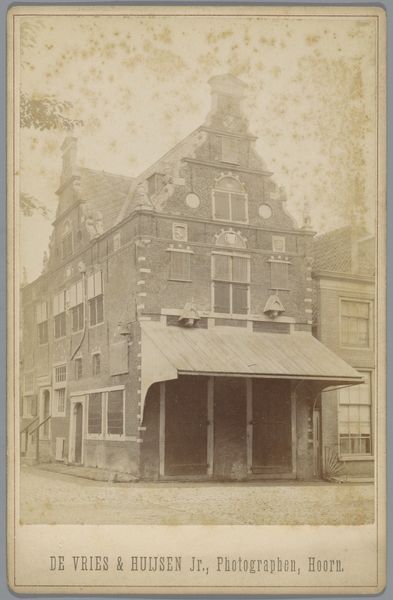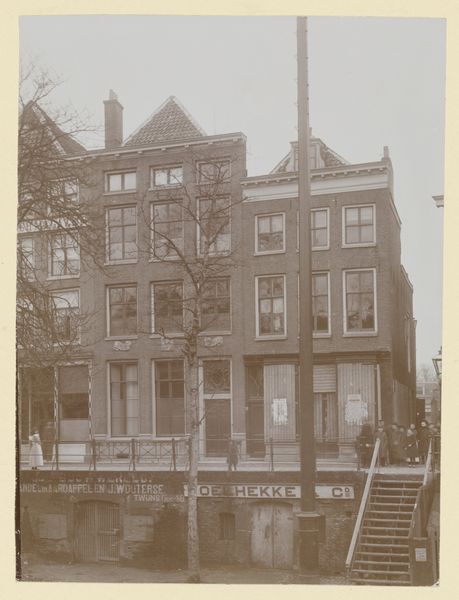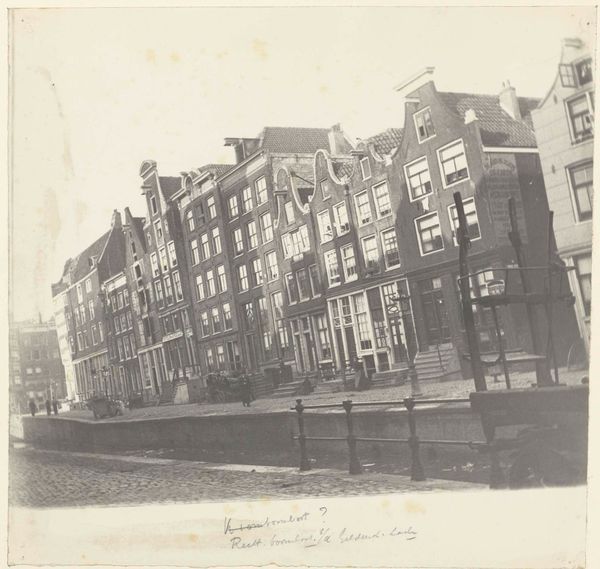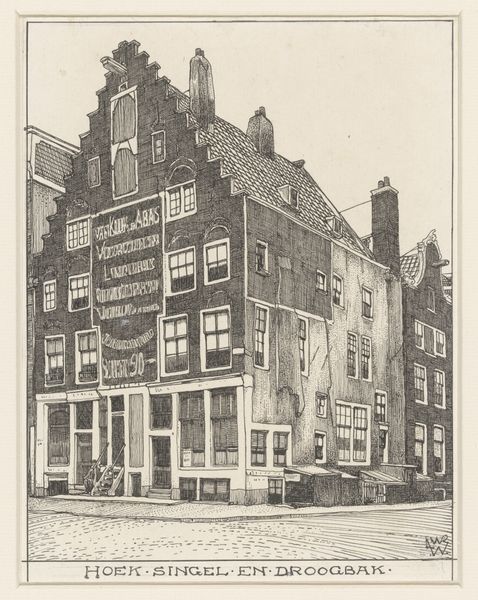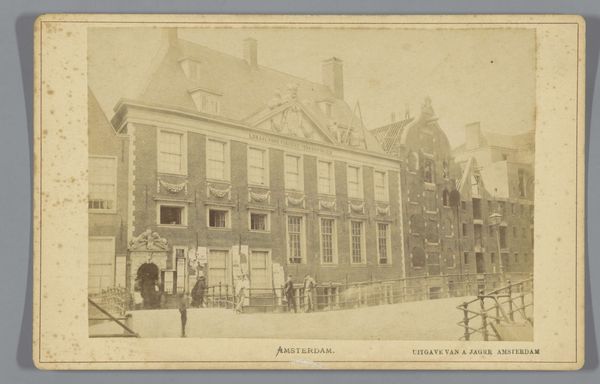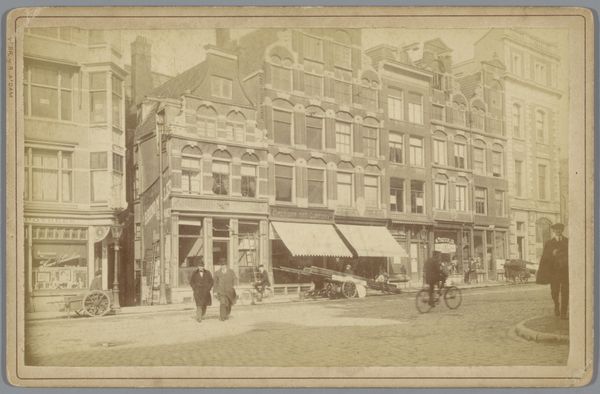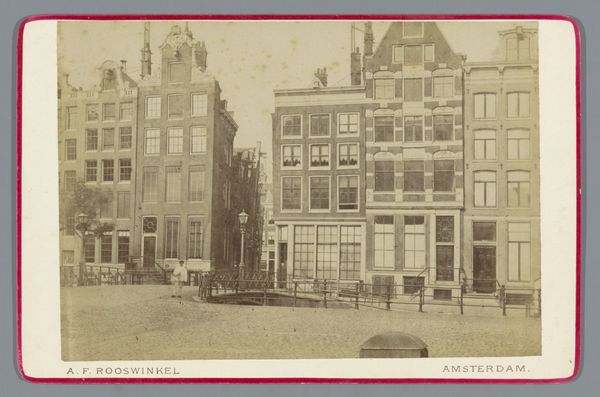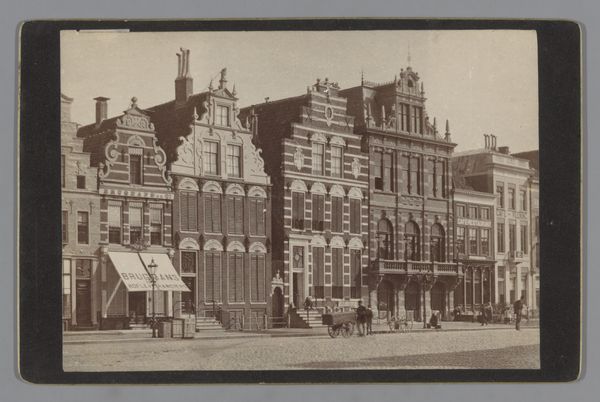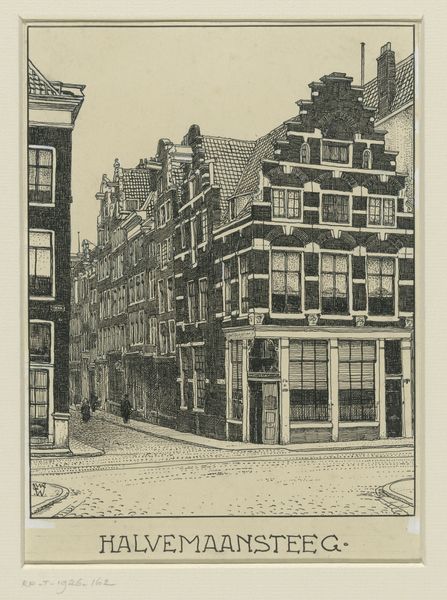
print, photography
#
dutch-golden-age
# print
#
photography
#
cityscape
Dimensions: height 108 mm, width 167 mm
Copyright: Rijks Museum: Open Domain
Editor: So, we're looking at "Gezicht op het Oost-Indisch Huis in Amsterdam," taken sometime between 1868 and 1875 by Andreas Theodorus Rooswinkel. It’s a photograph, a sepia-toned print. What strikes me is how…ordinary it looks. For something tied to such a powerful entity like the Dutch East India Company. What do you make of it? Curator: The very ordinariness you perceive is, I think, key to understanding its social role. By the late 19th century, the Dutch East India Company, though defunct, remained a potent symbol. This image presents a carefully constructed narrative, doesn't it? Editor: How so? Curator: Consider the image’s potential audience. Middle-class Dutch citizens, perhaps? Seeing the former headquarters – once a hub of global trade and colonial power – presented in this quiet, almost domestic light normalizes that history. It makes it seem like a quaint piece of the cityscape, rather than a place of contested global power. Look at the street itself - it's not teeming with activity, suggesting this institution's bygone power. Editor: That's a great point, presenting this image makes its presence within the landscape banal. Like saying 'this all happened, but now look at it as part of our normal everyday'. It does make you wonder what Rooswinkel's intent was, right? Curator: Indeed. The photographer, Rooswinkel, was likely making a conscious choice about how to represent this powerful symbol. We must always ask: Who benefits from this representation, and what histories are being subtly erased or downplayed? Editor: I guess I initially saw it as just a snapshot of a building. Now I see it’s actively shaping how viewers might think about Dutch colonial history, even in a seemingly objective form like photography. Curator: Precisely! Every image has its public role and power. Even a simple photo of a building has the potential to be very politically loaded.
Comments
No comments
Be the first to comment and join the conversation on the ultimate creative platform.
